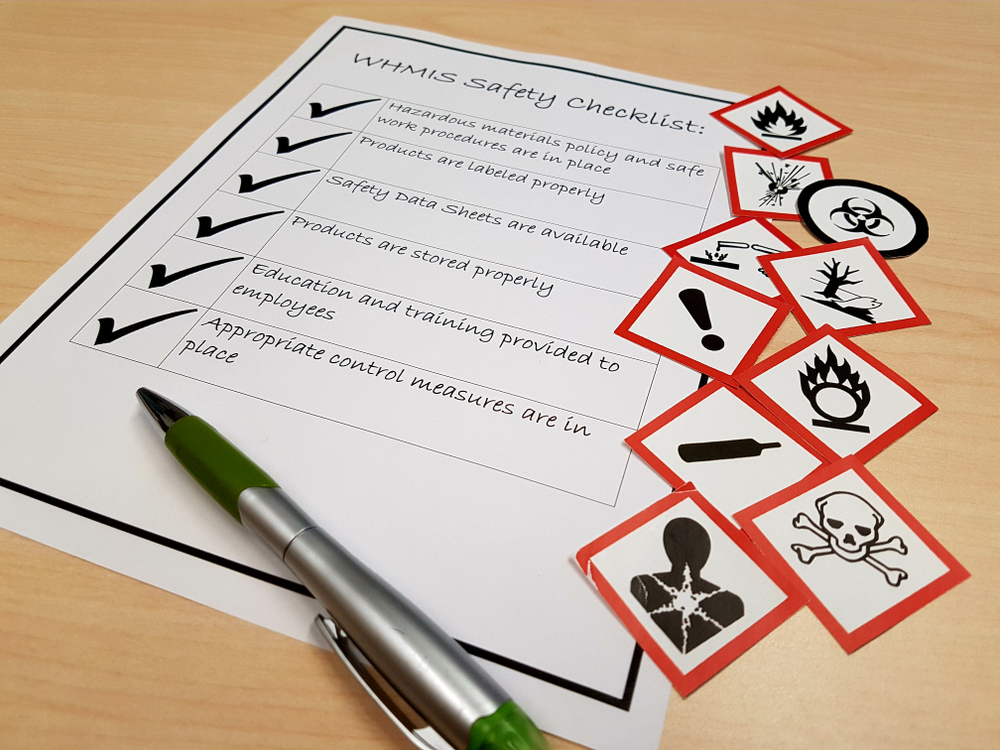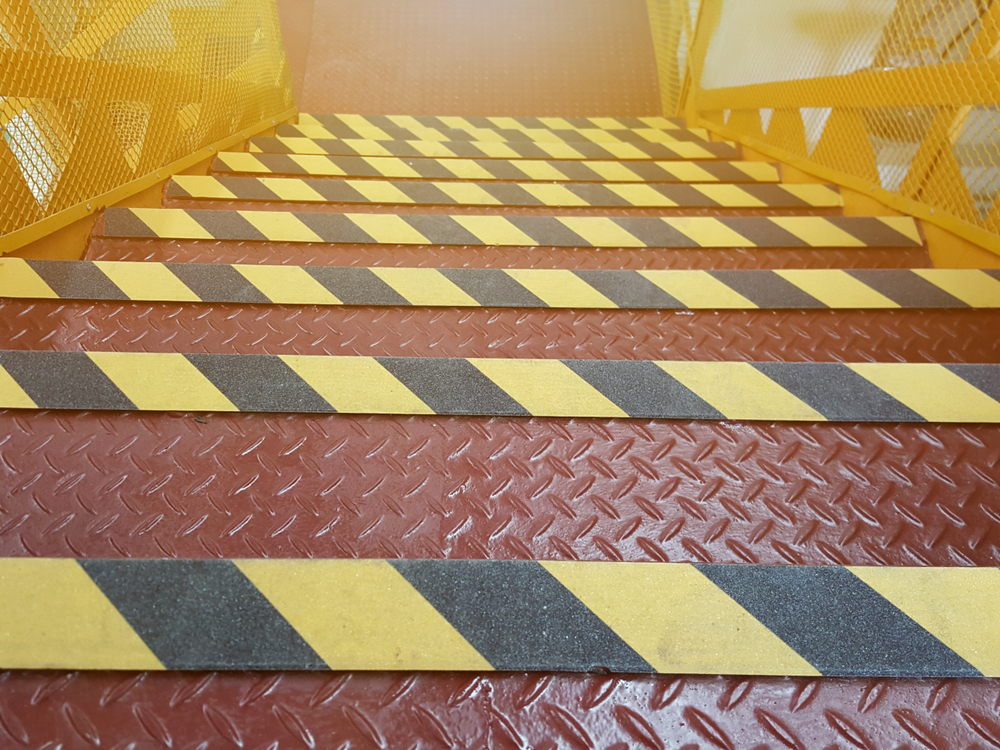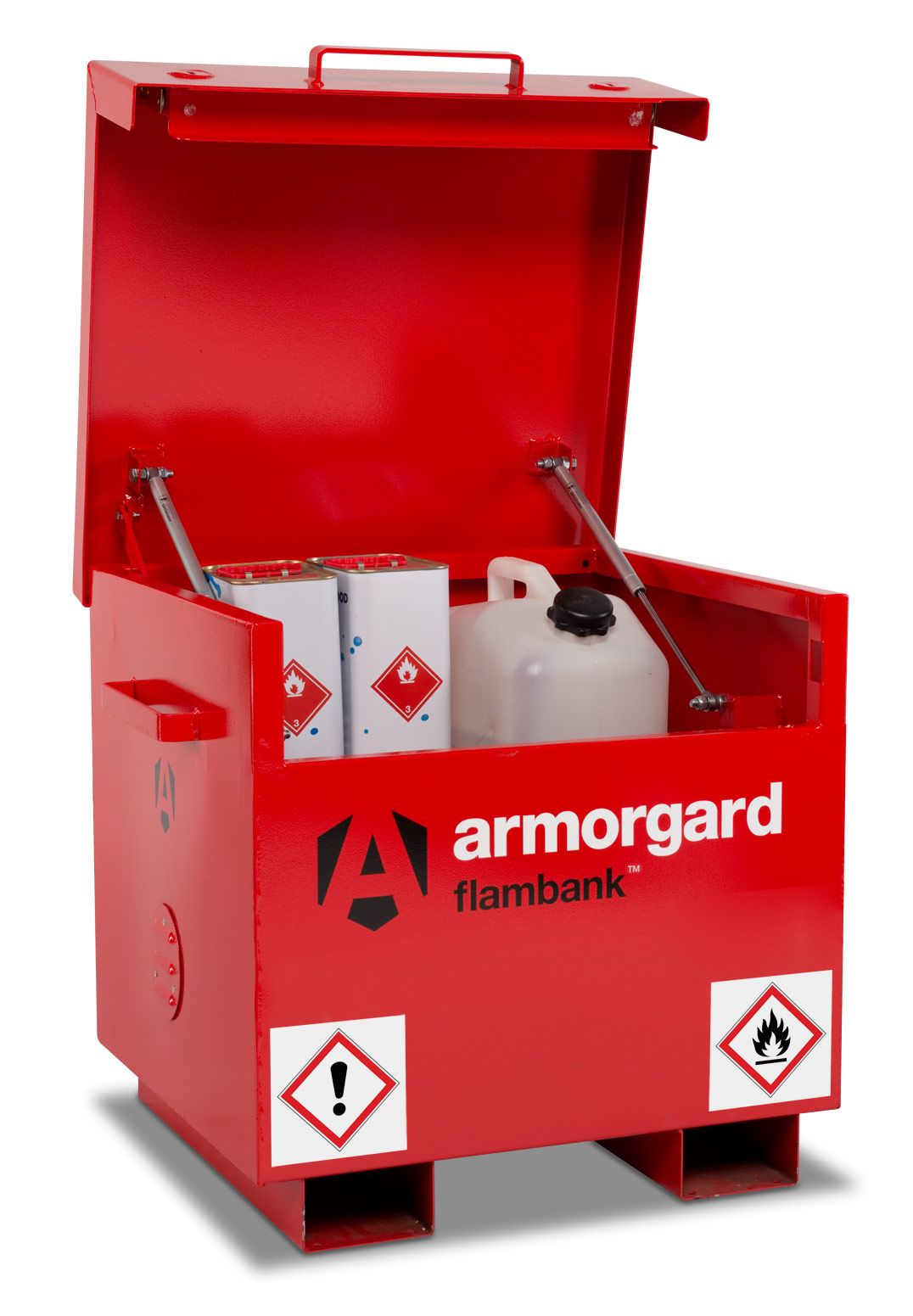If you are responsible for managing a business or leading a work team, you have a duty to make yourself aware of the rules and regulations in place to protect employees' health and safety. Only by doing so can you ensure they are kept safe at work, while fulfilling your own responsibilities as an employer.
For companies whose work involves the use or handling of potentially hazardous substances, this means adhering strictly to the guidelines set out in the Control of Substances Hazardous to Health (COSHH) Regulations 2002. The purpose of COSHH regulations is to prevent or reduce workers' exposure to potentially dangerous chemicals and materials, ensuring that accidents are avoided and staff wellbeing is preserved.
Here, we will explore the essential COSHH basics that businesses need to know in order to ensure that everyone on site understands their COSHH management responsibilities, and is provided with everything they need to safely work with substances hazardous to health.
What is the purpose of COSHH regulations and why are they important?
In 2021/22, 1.8 million workers suffered from work-related ill healh (new or long standing) in 2021/22, of which many will be a result of exposure to hazardous, dangerous or toxic substances in the workplace. This can include anything from asbestos and corrosive chemicals to solvents, biological waste, fumes and dust.
The impact of these incidents can be extremely damaging to a worker's health, leading to consequences such as chemical burns, skin disease, respiratory problems or even cancer. This is also damaging from the employer's point of view, as this leads to workplace absences, lost productivity, a damaged company reputation and the threat of regulatory penalties.
COSHH is the law put in place to prevent these accidents from occuring. Enforced by the Health & Safety Executive (HSE), the purpose of COSHH is to ensure that companies control all of the risks associated with the use of hazardous substances on site, by educating staff on how to handle these substances safely and providing them with the COSHH management equipment they will need to do so.
What are your COSHH responsibilities as an employer?
In order to fulfil all of their responsibilities under these rules, businesses need to ensure they are well acquainted with COSHH basics and have taken the following steps:
Carry out thorough COSHH assessments to identify potential risks and health hazards associated with the use of dangerous substances at work. This means considering the following:
- Are you using products that are specifically labelled as dangerous?
- Are staff working with substances that are harmful to breathe in? Do your working processes produce gases, fumes, dust or vapour that can be inhaled?
- Are you using chemicals or other substances that can cause damage to the skin?
- How likely is it that harm could arise because of the way these products are used?
Plan out a comprehensive strategy for how these risks will be controlled. For example, can an alternative product be used, or is there a way to prevent harm from being caused, or to utilise the substance in a safer way?
Provide control measures to ensure that any potential harm to health from hazardous substances on site is kept to an absolute minimum. This may include:
- Eliminating the unsafe substance completely and using something safer
- Altering the process so that less of the substance is used or produced
- Implementing containment or safety barriers to keep staff away from harmful substances where possible, or for capturing potentially harmful emissions at the source
- Providing personal protective equipment (PPE) and workwear to keep staff protected when handling hazardous materials
- Utilising safety signs and site safety boards to warn employees and site visitors of the potential risks posed by hazardous substances, and to inform them of the proper procedure when working with these substances
- Keeping COSHH management and spill control products n site to ensure that any accidental spills can be safely cleaned up and contained, and ensure they are easily accessible
- Ensure that staff receive thorough training on how to safely work with hazardous substances, and make sure they have a safe protocol to follow if an accident or emergency happens. This training should emphasise the purpose of COSHH regulations and their importance in maintaining a safe work environment
- Regularly check up on any control measures you implement to make sure they are kept in good condition and proper working order, and supervise staff to ensure that safe processes are being followed
- Monitor the health and wellbeing of any staff member who is working with hazardous substances to make sure they remain fit and healthy, especially if they do come into contact with any dangerous substances
By considering all of these factors, businesses can ensure they are properly complying with COSHH and providing their staff with everything they need to stay safe while using hazardous materials.
Who Has Legal Duties to Implement Controls Under COSHH?
Under COSHH regulations, the implementing controls is the employer’s responsibility. The employer is required to conduct risk assessments, implement control measures and ensure the safety of both employees and any other individuals who may be exposed to hazardous substances in the workplace. However, it is also incumbent upon employees to adhere to control measures, use provided Personal Protective Equipment (PPE), and report any hazards or potential breaches in safety.
Moreover, in certain instances, external contractors or third-party agents engaged in work at the premises may also have responsibilities to adhere to COSHH regulations.
Is COSHH Training a Legal Requirement?
COSHH training is a legal requirement for those who work with or are exposed to hazardous substances. The regulations mandate that employers provide adequate training and information to ensure that employees can handle, store, and dispose of hazardous substances safely. Failure to provide appropriate COSHH training can lead to severe legal consequences for employers, including fines and even imprisonment in extreme cases.
Who Is Required to Have COSHH Training?
COSHH training is mandatory for all employees who may come into contact with hazardous substances as part of their work. This includes, but is not limited to:
- Staff handling or administering medication
- Maintenance personnel using potentially hazardous materials like paints or solvents
- Cleaning staff using chemical agents
- Healthcare staff exposed to biological hazards
- Kitchen staff using cleaning agents or other chemicals
Moreover, managers and supervisors overseeing these roles must also undergo COSHH training to ensure compliance and supervise safety protocols effectively.
How Long Is COSHH Training Valid For?
The validity of COSHH training can vary depending on the specific circumstances and the nature of the work. However, it is generally recommended that COSHH training be refreshed every two to three years. Additionally, training should be updated if:
- There is a change in work practices or substances used
- New, potentially hazardous substances are introduced into the workplace
- There has been an incident involving a hazardous substance
- Changes in legislation necessitate updated training
It is the responsibility of the employer to keep track of training records and ensure that all staff members’ training is up-to-date.
Become COSH-compliant with SafetBuyer
For a complete range of safety products to help your company meet its COSHH requirements, browse our full range of COSHH management and spill control solutions at SafetyBuyer. To learn more about any of these products, or to get advice on which solution would work best for your business, get in touch with us on 0800 043 1061.
FAQs on the purpose of COSHH regulations
Which hazardous substances does COSHH not cover?
COSHH covers most hazardous substances used in the workplace. However, it does not cover certain substances that are regulated under other specific legislation, such as asbestos (Control of Asbestos Regulations), lead (Control of Lead at Work Regulations), radioactive substances (Ionising Radiations Regulations), and biological agents (Control of Substances Hazardous to Health Regulations - Schedule 3, Part II).
What are your COSHH responsibilities?
Your COSHH responsibilities depend on your role in the workplace:
As an employer, you are responsible for:
- Identifying hazards
- Conducting COSHH risk assessments on a regular basis
- Implementing control measures
- Providing information and training
- Monitoring and maintaining control measures
- Ensuring compliance with COSHH regulations
As an employee, you are responsible for:
- Following the control measures put in place by your employees
- Using personal protective equipment correctly
- Attending COSHH training
- Reporting any issues or incidents related to a hazardous substance to your employer
Why is COSHH important?
COSHH is important because it helps to protect the health and safety of employees and others in the workplace by minimising exposure to a hazardous substance. Compliance with COSHH regulations can reduce the risk of occupational illnesses, injuries and long-term health issues, leading to a safer and healthier work environment.
What are the employer's responsibilities under COSHH?
Under COSHH, employers are responsible for:
- Conducting a risk assessment to identify hazards and evaluate risks associated with any hazardous substance
- Implementing appropriate control measures to prevent or reduce exposure to hazardous substances
- Providing information, instruction and training on hazards, precautions and emergency procedures related to hazardous substances
- Monitoring and maintaining control measures to ensure their continued effectiveness
- Providing appropriate personal protective equipment and ensuring its proper use and maintenance
- Establishing emergency plans and procedures for incidents involving hazardous substances
- Keeping records of every risk assessment, control measures and incidents involving hazardous substances
Do COSHH regulations apply to all industries?
COSHH regulations apply to all industries where hazardous substances are used, produced or generated, including manufacturing, construction, healthcare, agriculture and many others. Any workplace that handles or has the potential to be exposed to hazardous substances falls under the scope of COSHH regulations.
How can I assess the risks posed by hazardous substances in my workplace?
To assess the risks posed by hazardous substances in your workplace, follow these steps:
- Identify the hazardous substances present in the workplace by checking product labels and safety data sheets (SDS), or consulting manufacturers and suppliers
- Evaluate the potential exposure routes, such as inhalation, skin contact or ingestion, and consider the frequency and duration of exposure
- Determine the potential health effects of the hazardous substances, based on their properties and the level of exposure
- Identify any vulnerable individuals or groups, such as pregnant workers or those with pre-existing health condition
- Assess the effectiveness of existing control measures and identify any additional measures needed to reduce exposure
- Record the findings of the COSHH risk assessment and review it regularly or when there are changes in work processes or substances used
What are the consequences of non-compliance with COSHH regulations?
Non-compliance with COSHH regulations can result in:
- Legal penalties, such as fines or prosecution
- Increased risk of occupational illnesses, injuries and long-term health issues for employees
- Damage to the company's reputation and potential loss of business
- Increased costs related to employee compensation claims, medical expenses and workplace disruptions
- Enforcement action from the Health and Safety Executive (HSE) or local authorities, which may require immediate remedial action or even closure of the workplace until compliance is achieved
- Potential civil lawsuits from affected employees or their families seeking compensation for harm caused by exposure to hazardous substances
- Increased employee turnover and difficulty in attracting and retaining skilled workers due to poor workplace safety and health conditions
- Decreased productivity and morale among employees, as a result of an unsafe working environment and concerns over health risks
Where can I find more information about COSHH?
For more information about COSHH, you can consult the HSE, the UK's national regulator for workplace health and safety. They provide comprehensive guidance on COSHH, including practical advice on a COSHH risk assessment, control measures and compliance. Visit their website at https://www.hse.gov.uk/coshh/ for detailed information and resources.
 Over 12,000
Over 12,000  Simple no quibble
Simple no quibble  Prompt dispatch &
Prompt dispatch &  UK Mainland Delivery
UK Mainland Delivery 













